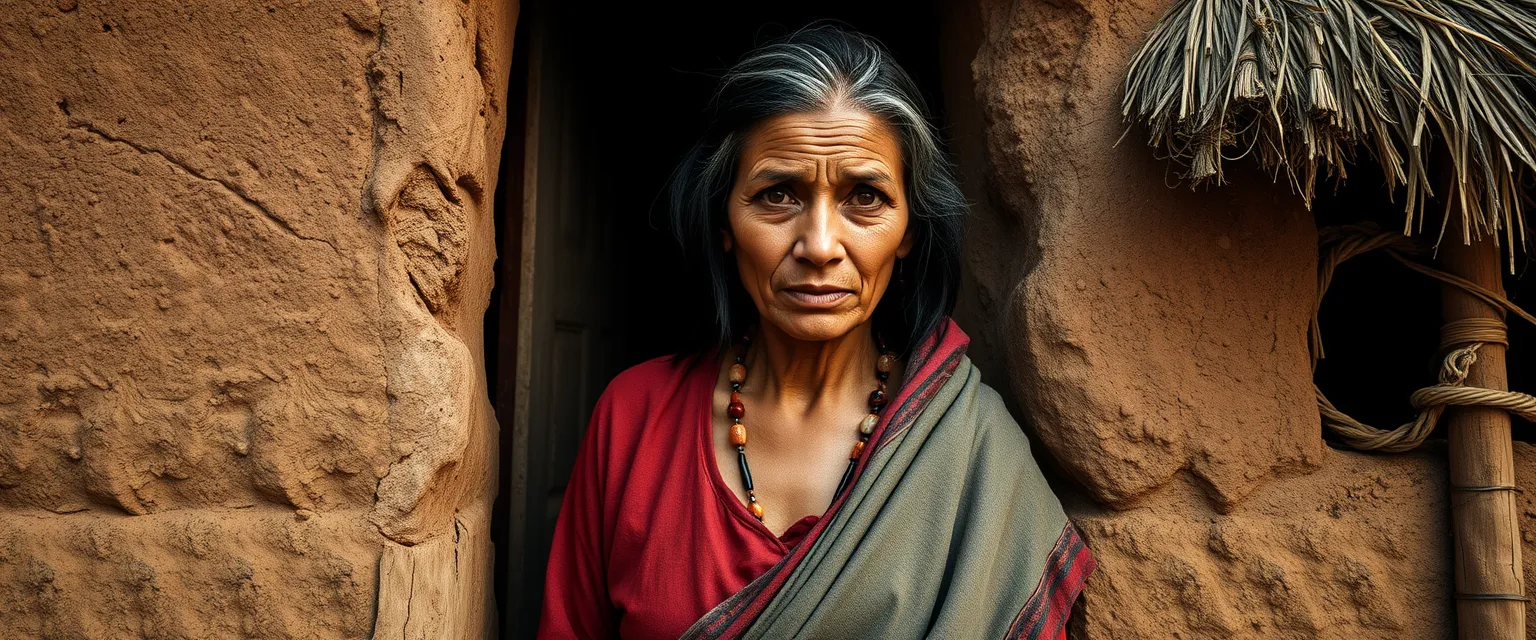In the rustic village of Ashwood, where the thatched roofs seemed to blend seamlessly into the rolling hills, a woman named Elara toiled in obscurity. Her worn, calloused hands, roughened by years of tilling the unforgiving soil, told the tale of a life lived in servitude to the land. Elara's eyes, a deep, earthy brown, seemed to hold the weight of the world, as if the very soil itself had seeped into her soul. Her dark hair, streaked with wisps of silver, was often tied back in a simple knot, revealing a face etched with the lines of hardship and perseverance.
Elara's life was a testament to the unforgiving cycle of poverty, where every dawn brought a new struggle to eke out a meager existence. Her humble cottage, a patchwork of mud and thatch, seemed to lean precariously on its wooden stilts, as if it, too, was weary of the constant battle against the elements. The scent of damp earth and woodsmoke clung to her tattered clothing, a constant reminder of the relentless toil that filled her days.
Despite the hardships, Elara's face, though weathered, still held a quiet beauty, a testament to the resilience of the human spirit. Her features, strong and angular, seemed chiseled from the very earth she worked. The deep lines etched into her forehead, a topography of worry and concern, told the story of a life lived on the precipice of despair. Yet, in her eyes, a spark of determination flickered, a flame that refused to be extinguished by the cruel whims of fate.
Elara's story was one of sacrifice, of a life devoted to the care of her many sons, each one a tiny, precious miracle born of her own exhausted body. The villagers would whisper of her remarkable fertility, as if the gods themselves had seen fit to bless her with an abundance of children. The truth, however, was far more mundane – Elara's body was a vessel, worn down by the relentless cycle of childbirth and toil.
As she went about her daily routine, her movements were a blur of efficiency, each action honed by years of practice. Her hands moved with a quiet confidence, as if guided by an unseen force, as she tended to the cooking pot, stirring the thin stew that would have to suffice for another day. Her voice, though worn, still held a gentle warmth, a soothing balm to the fractious energies of her brood.
In the evenings, when the fire crackled and spat, Elara would sit, surrounded by her sons, and spin tales of a world beyond the narrow horizon of their village. Her stories, woven from the threads of myth and legend, transported her children to realms both magical and terrifying. As she spoke, her eyes would sparkle, and for a fleeting instant, the weight of her burdens would lift, allowing a glimpse of the vibrant, unbridled spirit that lay beneath the surface.
In this way, Elara's life was a testament to the indomitable will to survive, to thrive in the face of overwhelming adversity. Though her world was one of unrelenting hardship, she had cultivated a beauty within, a beauty that shone like a beacon in the darkness, guiding her sons through the treacherous landscape of their own destinies.
